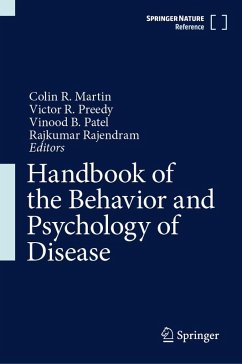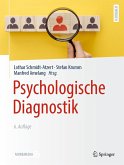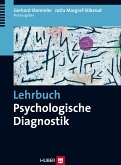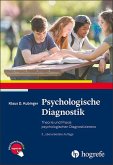Handbook of the Behavior and Psychology of Disease
Herausgegeben:Martin, Colin R.; Preedy, Victor R.; Patel, Vinood B.; Rajendram, Rajkumar
Handbook of the Behavior and Psychology of Disease
Herausgegeben:Martin, Colin R.; Preedy, Victor R.; Patel, Vinood B.; Rajendram, Rajkumar
- Gebundenes Buch
- Merkliste
- Auf die Merkliste
- Bewerten Bewerten
- Teilen
- Produkt teilen
- Produkterinnerung
- Produkterinnerung
This comprehensive handbook covers the entire range of physical disorders and their interrelated psychological problems. Behavioral changes, altered psychology, and in some cases, severe psychiatric conditions are frequent manifestations of communicable and non-communicable disease. While diseases have predictable trajectories, their psychological co-morbidities do not. This unpredictability, and sometimes lack of understanding can have profound effects on the professional, the patient, and the larger family unit. Mental health related domains of quality-of-life measure also impact the disease…mehr
Andere Kunden interessierten sich auch für
![Der Mann-Zeichen-Test Der Mann-Zeichen-Test]() Hannelore BrosatDer Mann-Zeichen-Test7,90 €
Hannelore BrosatDer Mann-Zeichen-Test7,90 €![Psychologische Diagnostik Psychologische Diagnostik]() Psychologische Diagnostik64,99 €
Psychologische Diagnostik64,99 €![Lehrbuch Psychologische Diagnostik Lehrbuch Psychologische Diagnostik]() Lehrbuch Psychologische Diagnostik50,00 €
Lehrbuch Psychologische Diagnostik50,00 €![Psychologische Diagnostik Psychologische Diagnostik]() Klaus D. KubingerPsychologische Diagnostik49,95 €
Klaus D. KubingerPsychologische Diagnostik49,95 €![ADHS und Schizophrenie ADHS und Schizophrenie]() Ursula DavatzADHS und Schizophrenie44,00 €
Ursula DavatzADHS und Schizophrenie44,00 €![Die verzauberte Familie Die verzauberte Familie]() Marta KosDie verzauberte Familie39,90 €
Marta KosDie verzauberte Familie39,90 €![Psychotherapeutische Diagnostik Psychotherapeutische Diagnostik]() Heinrich Bartuska / Manfred Buchsbaumer / Gerda Mehta / Gerhard Pawlowsky / Stefan Wiesnagrotzki (Hgg.)Psychotherapeutische Diagnostik74,99 €
Heinrich Bartuska / Manfred Buchsbaumer / Gerda Mehta / Gerhard Pawlowsky / Stefan Wiesnagrotzki (Hgg.)Psychotherapeutische Diagnostik74,99 €-
-
-
This comprehensive handbook covers the entire range of physical disorders and their interrelated psychological problems. Behavioral changes, altered psychology, and in some cases, severe psychiatric conditions are frequent manifestations of communicable and non-communicable disease. While diseases have predictable trajectories, their psychological co-morbidities do not. This unpredictability, and sometimes lack of understanding can have profound effects on the professional, the patient, and the larger family unit. Mental health related domains of quality-of-life measure also impact the disease process but are often overlooked. Critical information targeted to experts within specialized areas can fail to reach a wider group of more general practitioners. This is complicated by the fact that psychological conditions may prompt organic disease, or conversely, disease may set off psychological disorders. This reference work creates the linkage between the two areas in a manner that is accessible to both experts and non-experts alike.
Produktdetails
- Produktdetails
- Verlag: Springer / Springer Nature Switzerland / Springer, Berlin
- Artikelnr. des Verlages: 89183048, 978-3-031-73362-8
- Seitenzahl: 3224
- Erscheinungstermin: 27. September 2025
- Englisch
- Abmessung: 241mm x 160mm x 182mm
- Gewicht: 6010g
- ISBN-13: 9783031733628
- ISBN-10: 3031733622
- Artikelnr.: 71477432
- Herstellerkennzeichnung
- Springer-Verlag GmbH
- Tiergartenstr. 17
- 69121 Heidelberg
- ProductSafety@springernature.com
- Verlag: Springer / Springer Nature Switzerland / Springer, Berlin
- Artikelnr. des Verlages: 89183048, 978-3-031-73362-8
- Seitenzahl: 3224
- Erscheinungstermin: 27. September 2025
- Englisch
- Abmessung: 241mm x 160mm x 182mm
- Gewicht: 6010g
- ISBN-13: 9783031733628
- ISBN-10: 3031733622
- Artikelnr.: 71477432
- Herstellerkennzeichnung
- Springer-Verlag GmbH
- Tiergartenstr. 17
- 69121 Heidelberg
- ProductSafety@springernature.com
Colin R. Martin, BSc, MSc, PhD, MBA, YCAP, FHEA, is Visiting Professor of Perinatal Wellbeing at the Institute of Health and Wellbeing at the University of Suffolk, UK. He has published or has in press well over 300 research papers and book chapters. He is a keen book author and editor having written and/or edited more than 30 books. These outputs include the prophetic insight into the treatment of neurological disease, Handbook of Behavior, Food and Nutrition (2011), Nanomedicine and the Nervous System (2012), Oxidative Stress and Dietary Antioxidants in Neurological Disease (2020), The Neuroscience of Depression: Features, Diagnosis and Treatment (2021), and Zika Virus Impact, Diagnosis, Control and Models (2021). He is particularly interested in the psychobiological interface between psychological and physical well-being, neurological status and pathology, and nutritional substrates. His broad clinical work within the mental health field has brought him into direct contact with clinical presentations where challenging behavior is common, including substance abuse and alcohol dependency, schizophrenia, personality disorder, and medium and high secure forensic mental health environments. He is involved in collaborative international research with many European and non-European countries. Victor R. Preedy, BSc, PhD, DSc, FRSB, FRSPH, FRCPath, FRSC, FRSM, is Professor of Clinical Biochemistry (Hon) at Kings College Hospital and Emeritus Professor of Clinical Biochemistry at King’s College London. He has an Honorary Professorship at the University of Suffolk and was the long-term Director of the Genomics Centre at King’s College London from 2006 to 2020. He graduated in 1974 with an Honors Degree in Biology and Physiology with Pharmacology. He gained his University of London PhD in 1981. In 1992, he received his Membership of the Royal College of Pathologists, and in 1993, he gained his second doctorate (DSc), for his outstanding contribution to protein metabolism. He was recently elected as a Fellow of the Royal Society of Medicine in 2022 and prior to that elected as a Fellow of The Royal Society of Biology, The Royal College of Pathologists, The Royal Society for the Promotion of Health, The Royal Institute of Public Health and Hygiene, The Royal Society for Public Health, and The Royal Society of Chemistry. He has carried out research when attached to Imperial College London, The School of Pharmacy (now part of University College London) and the MRC Centre at Northwick Park Hospital. He has collaborated with international research groups in Finland, Japan, Australia, the USA, and Germany. He is a leading expert on the science of health and well-being. To his credit, he has over 750 articles, which includes peer-reviewed manuscripts based on original research, abstracts and symposium presentations, reviews, and edited books. Vinood B. Patel, BSc, PhD, FRSC, is Professor of Clinical Biochemistry at the University of Westminster. He is a nationally and internationally recognized researcher and has edited several biomedical books. These books include Post Traumatic Stress Disorder, Comprehensive Guide to Autism, The Neuroscience of Depression, and the Handbook of Cognitive Behavioral Therapy. He has interests in metabolic pathways particularly related to mitochondrial energy regulation. He conducts research into antioxidants, phytochemicals, iron, alcohol and fatty acids in the pathophysiology of liver and neurological conditions. Other areas of interest are identifying new biomarkers that can be used for the diagnosis and prognosis of disease and understanding the biological basis of autism. He graduated from the University of Portsmouth with a degree in Pharmacology and completed his PhD in protein metabolism at King’s College London in 1997. His postdoctoral work was carried out at Wake Forest University Baptist Medical School, studying structuralfunctional alterations to mitochondrial ribosomes. In 2014, he was elected as a Fellow to The Royal Society of Chemistry. Dr. Rajkumar Rajendram, AKC, BSc, MBBS (Dist), MRCP (UK), MACP, EDIC, FRCP Edin, FRCP Lon, is a distinguished clinician-scientist who has a focus on acute internal medicine, anesthesia, intensive care, and perioperative medicine. He graduated in 2001 with a distinction from Guy’s, King’s and St. Thomas Medical School, in London. As an undergraduate he was awarded several prizes, merits, and distinctions in preclinical and clinical subjects. He began his postgraduate medical training in acute general medicine and intensive care in Oxford. He attained membership of the Royal College of Physicians (MRCP) in 2004 and completed specialist training in acute and general medicine in Oxford in 2010. He also trained in anesthesia and intensive care in London. During this training, he obtained extensive experience in the management of pathology at the interface between medicine, neurology and psychiatry. He was awarded fellowship of the Royal College of Anaesthetists (FRCA) in 2009 and fellowship of the Faculty of Intensive Care Medicine (FFICM) in 2013. He was awarded the European diploma of intensive care medicine (EDIC) in 2014. In 2017 he became a fellow of the Royal College of Physicians, Edinburgh (FRCP Edin) and then became a fellow of the Royal College of Physicians, London (FRCP Lon) in 2019. He returned to Oxford as a consultant in Acute General Medicine at the John Radcliffe Hospital before moving to Stoke Mandeville Hospital, Aylesbury, as a Consultant in Anaesthesia and Intensive Care. He is currently a consultant in Internal Medicine at King Abdulaziz Medical City, National Guard Heath Affairs, Riyadh Saudi Arabia, and is actively involved in the management of a broad range of neurological and endocrine diseases relevant to the biology and pathology of mental disorders. As a clinician scientist, he has also devoted significant time and effort into neuroscientific research and education. He is a joint appointment Associate Professor in the College of Medicine, King Saud bin Abdulaziz University for Health Sciences, Riyadh, Saudi Arabia, and has published over 450 textbook chapters, review articles, peer-reviewed papers, and abstracts, many of which are related to the pathogenesis, investigation, and treatment of diseases that require critical care. He has edited several books that explore the interface between the biology and pathology of mental disorders. These include Factors Affecting Neurodevelopment, The Neurobiology, Physiology and Psychology of Pain, and The Neuroscience of Depression.
Setting the Scene.- Cardiovascular System.- Dermatological System.- Gastrointestinal System.- Hematological System.- Hepatobiliary and Pancreatic System.- Metabolic and Endocrine System.- Musculoskeletal System.- Nervous System.- Renal, Genitourinary and Reproductive Systems.- Respiratory System.- Cancers.- Nutritional and Dietary Aspects, and Eating Disorders.- COVID-19.- HIV/AIDS.- Substance Use, Misuse and Addictive Behavior.- Hospitalization and Trauma.- Other Communicable Diseases.- Other Non-Communicable Diseases, Conditions And Events.- Methods, Instruments and Techniques.- International Aspects.- Case studies.- Resources.
Setting the Scene.- Cardiovascular System.- Dermatological System.- Gastrointestinal System.- Hematological System.- Hepatobiliary and Pancreatic System.- Metabolic and Endocrine System.- Musculoskeletal System.- Nervous System.- Renal, Genitourinary and Reproductive Systems.- Respiratory System.- Cancers.- Nutritional and Dietary Aspects, and Eating Disorders.- COVID-19.- HIV/AIDS.- Substance Use, Misuse and Addictive Behavior.- Hospitalization and Trauma.- Other Communicable Diseases.- Other Non-Communicable Diseases, Conditions And Events.- Methods, Instruments and Techniques.- International Aspects.- Case studies.- Resources.








